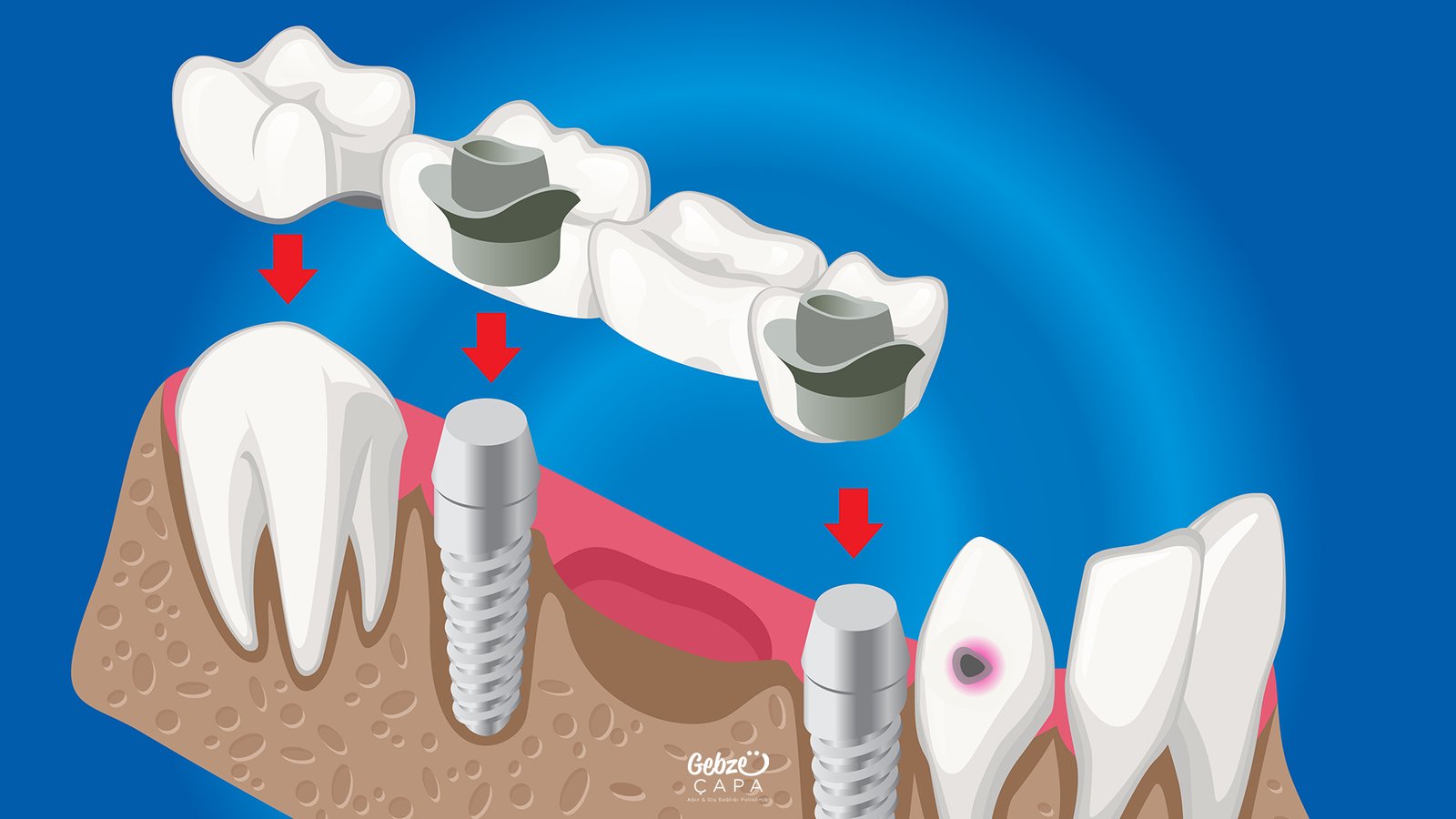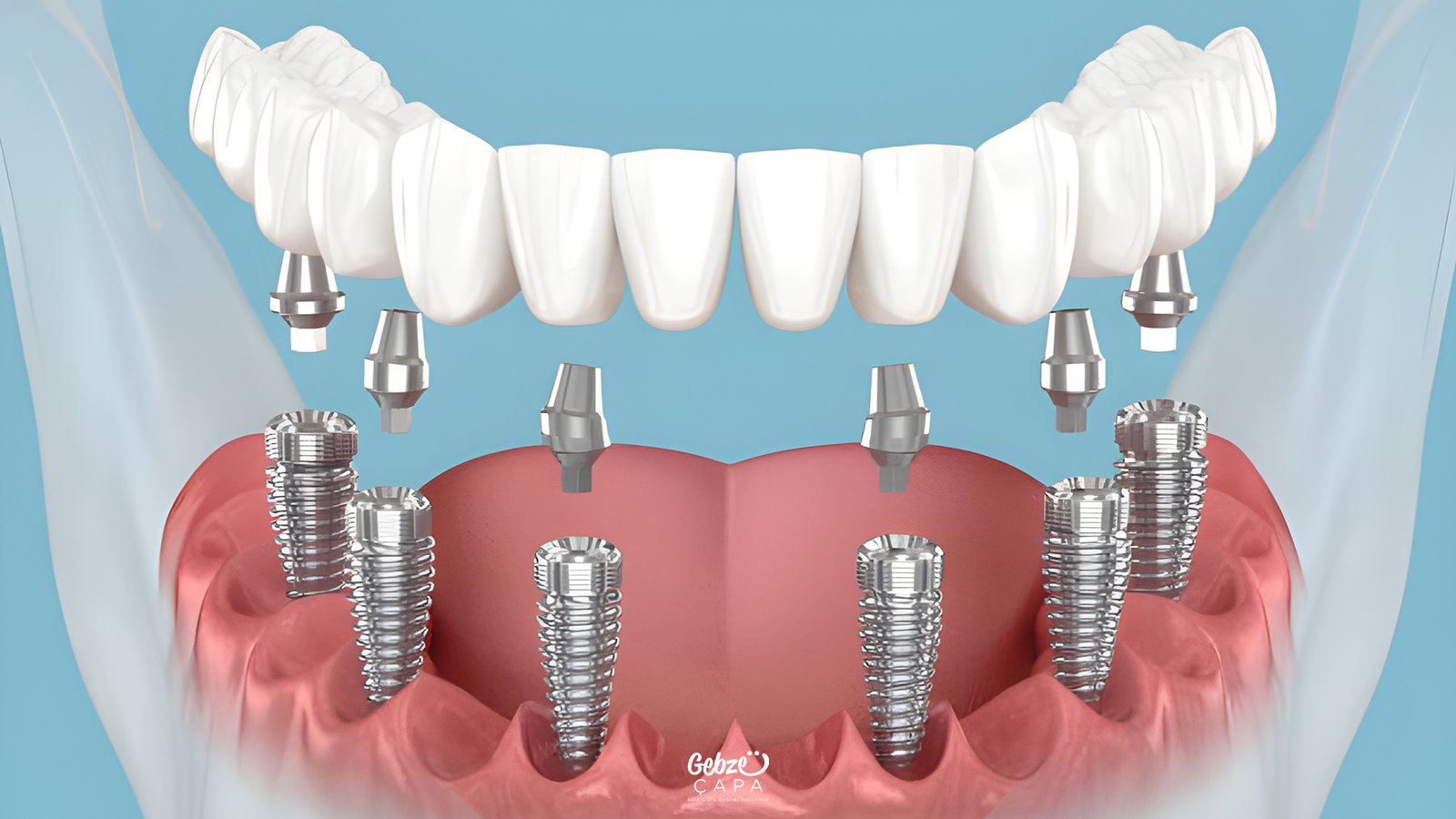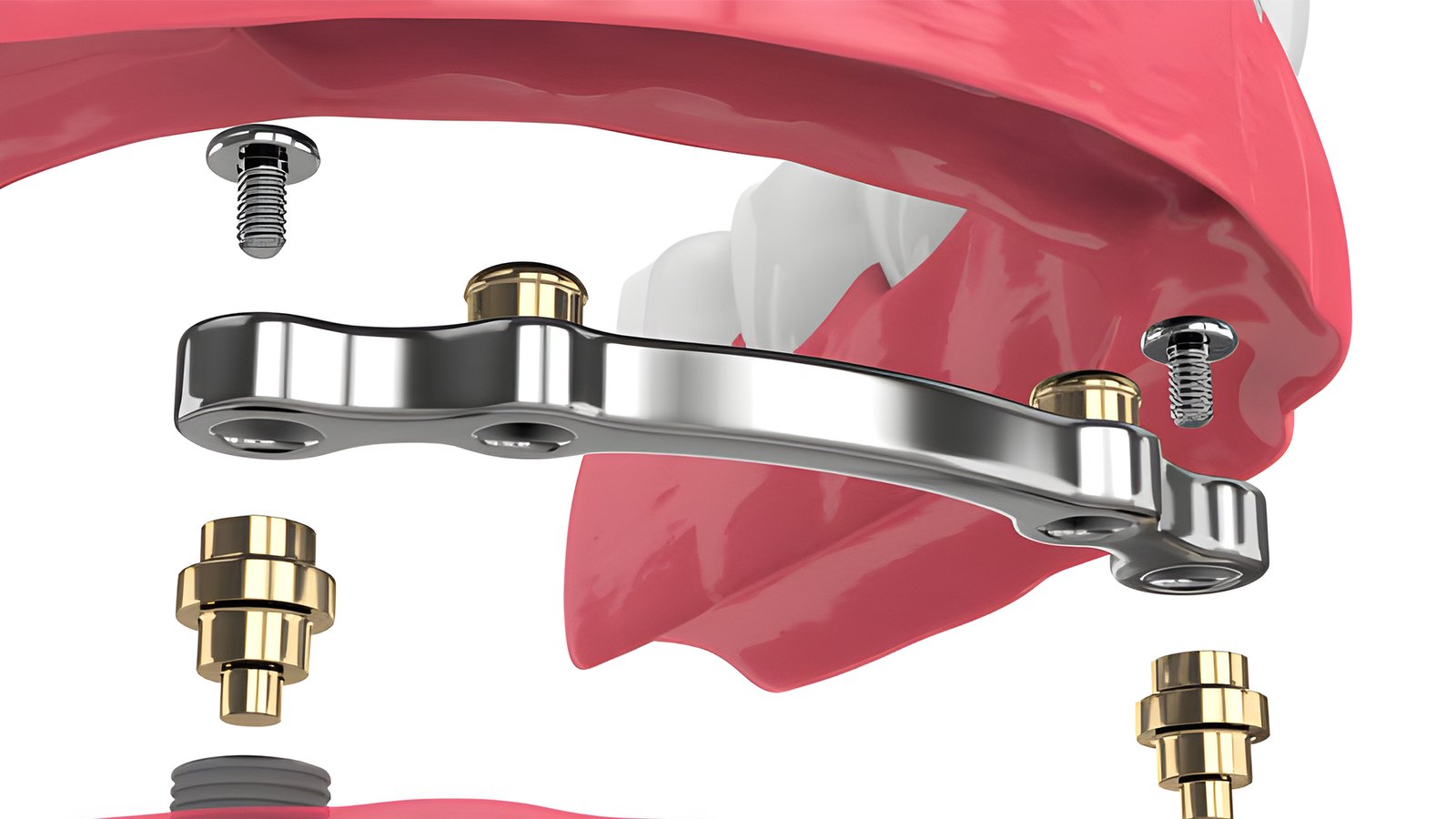Implant-Supported Prosthesis
Dentistry, along with technological advancements, provides more effective, comfortable, and aesthetic solutions to patients. An exemplary manifestation of this evolution is the “implant-supported prosthesis,” which stands out as a groundbreaking treatment method for individuals experiencing tooth loss. In this article, we will delve into the concept of implant-supported prostheses, exploring a range of crucial topics from pre-treatment preparations to post-treatment care. Additionally, we will address the significance of implant-supported prostheses in the field of dentistry, the characteristics of the materials used, and potential future developments.
What is an Implant-Supported Prosthesis?
An implant-supported prosthesis refers to specially designed prosthetics integrated with dental implants. Dental implants are screw-like structures made of titanium that are surgically placed into the jawbone, serving as replacements for natural tooth roots. The implant-supported prosthesis is then affixed onto these implants. This method provides individuals with missing teeth an aesthetically pleasing and functionally excellent solution.
Implant-Supported Prosthesis Application Process:

- Examination and Planning: The implant-supported prosthesis application begins with a thorough examination of the patient and determining their needs. During this phase, the dentist conducts a comprehensive assessment of the patient’s overall health, oral structure, existing dental condition, and aesthetic expectations to create a treatment plan. This process actively involves the patient in their treatment journey.
- Implant Placement: Dental implants, shaped like titanium screws, are surgically placed at specific locations by a specialized surgeon. These implants integrate with the jawbone, forming a strong foundation. The implant placement process typically occurs with minimal pain and discomfort, performed under local anesthesia.
- Temporary Prosthesis Application: After the implants are in place, a temporary prosthesis may be applied for the patient. This temporary prosthesis allows the patient to carry on with daily activities while waiting for the implants to heal. Additionally, it helps the patient get accustomed to the new dental structure.
- Impression and Design: Once the implants have fully settled, the dentist takes detailed measurements to create a prosthesis tailored to the patient’s oral structure. Considering aesthetic expectations, tooth color, and other personal preferences, a custom design is developed.
- Placement of the Implant-Supported Prosthesis: The prosthesis is attached to the implants using special connectors. During this phase, the dentist makes necessary adjustments to ensure the prosthesis fits correctly and the patient is comfortable. Detailed information about the care and maintenance of the prosthesis is provided to the patient.
Advantages:
- Natural Appearance: Implant-supported prostheses provide a natural-looking aesthetic due to their custom design. The color, shape, and size of the teeth are carefully determined to complement the patient’s facial features.
- Functional Performance: Implants, integrating with the jawbone, allow implant-supported prostheses to sit on a sturdy foundation. This provides the patient with a comfortable and effective chewing function similar to natural teeth.
- Longevity and Durability: With proper care and regular check-ups, implant-supported prostheses can endure for many years. Titanium implants and specially designed prosthetics offer a long-term solution.

Post-Treatment Care and Recommendations
After the implant-supported prosthesis application, regular dental check-ups are recommended for the patient. These check-ups are conducted to monitor the condition of the implants, check the fit and maintenance of the prosthesis. Additionally, the patient should adhere to basic oral hygiene practices such as regular brushing, flossing, and mouthwash use.
Material Options and Advancing Technology: Materials used in implant-supported prosthesis applications are becoming more durable, lightweight, and biocompatible over time. In addition to titanium implants, aesthetic materials like porcelain and ceramics are used in the design of prosthetics. These materials not only provide a natural tooth-like appearance but also offer long-term durability. With advancing technology, digital measurement and design systems are used to produce implant-supported prostheses more precisely. This enables patients to undergo treatment in a shorter time and with less invasiveness.
Psychological Impact of Implant-Supported Prostheses
Tooth loss can impact not only physical health but also an individual’s psychological well-being. Implant-supported prostheses, with their aesthetic and functional advantages, can enhance not only the smile but also the patient’s confidence and quality of life. Emotional issues such as shyness and insecurity caused by tooth loss can be alleviated with implant-supported prostheses. Patients can experience more comfortable social interactions and work life without the need to hide their smiles after treatment.
Future Developments: Dentistry constantly evolves with technology and science. Anticipated developments in the future of implant-supported prostheses include faster healing processes, more durable materials, cost-effective treatment options, and personalized treatment plans. Advances in bioprinting technology may enable faster and more precise prosthesis production using 3D printers. Additionally, artificial intelligence-supported treatment planning systems could increase patient satisfaction and success rates.

Conclusion
İmplant-supported prosthesis is an effective solution that presents a contemporary approach in dental treatment. With its natural appearance, functional performance, and longevity, this treatment option provides a significant advantage for individuals with tooth loss. Thanks to this innovative treatment, patients can achieve healthy, natural, and beautiful smiles. Serving as an example of technological advancements in dentistry, implant-supported prostheses offer a unique opportunity to enhance the quality of life for patients. Appropriate treatment options for each patient should be determined based on individual circumstances and needs. Implant-supported prostheses play a crucial role in modern dentistry by providing a solution that addresses both aesthetic and functional needs, contributing to the overall well-being of individuals.



